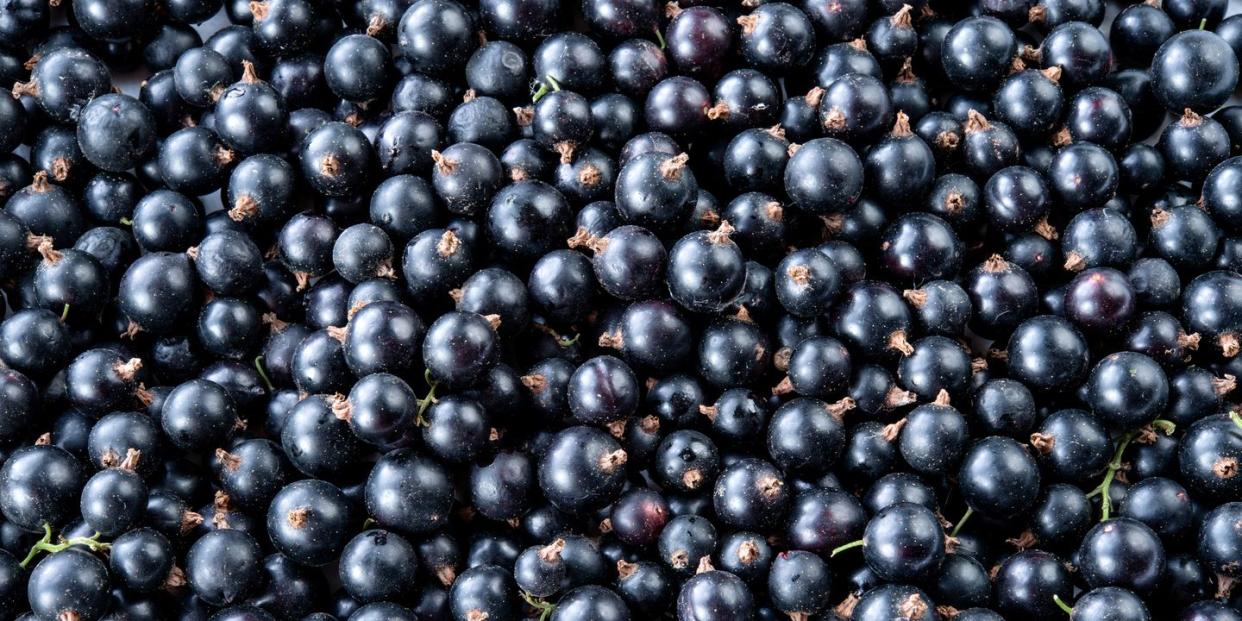To Recover Faster, Research Suggests That Adding Blackcurrants to Your Diet May Help

Adding blackcurrant (a shrub grown for its edible berries) extract into your diet could help you recover faster and more effectively from a workout, new research suggests.
Blackcurrant consumption may reduce inflammation and oxidative stress (a harmful chemical process in your body) following strenuous resistance exercise.
It’s worth consulting a sports dietitian before adding any supplements or extracts to your diet.
Being able to recover more effectively—and quickly—is a major part of running performance, and, for this reason, a new, small study in the journal Nutrients suggests you may want to consider adding blackcurrant (a shrub grown for its edible berries) into your mix.
Researchers recruited 27 men and women for a double-blind, randomized study, and chose participants who were unaccustomed to strength training. About half took a placebo while the other half received a 300 mg dose of New Zealand blackcurrant extract for 11 days—one capsule was taken once a day for seven days leading up to exercise, one was taken before performing bicep curls, and then one was taken once a day for four days after the workout.
Those in the extract group experienced faster recovery of muscle function than the placebo group participants. The extract group regained muscle strength within 24 hours compared to 72 hours for those taking the placebo.
The reason is likely related to how blackcurrant consumption may reduce inflammation and oxidative stress (a harmful chemical process in your body) following strenuous resistance exercise, according to study co-author Julie Hunt, Ph.D., lecturer in sport and exercise sciences at the School of Biosciences and Medicine at the University of Surrey. She told Runner’s World that these effects are associated with anthocyanin, a compound with antioxidant effects that is ample in New Zealand blackcurrant extract.
Many people consume anthocyanins in extract, juice, or whole food form after exercising as a way to boost recovery. But Hunt points out that the recent study highlights the advantages of supplementing both before and after.
“There’s a close relationship between anthocyanin levels in the blood and protection against oxidative stress, so it’s best to consume New Zealand blackcurrant extract one to two hours before exercise, as this gives time for the anthocyanins to be absorbed and peak in our bloodstream,” she said.
That strategy primes muscle tissue to cope with the inevitable increase in oxidative stress, she added, and having some after exercise in the recovery period can help as well. For example, in the study, they found those in the extract group had about half the amount of muscle soreness in the day or two post-training compared to the placebo group.
In terms of why fruit from New Zealand was chosen, Hunt noted that blackcurrants from that country tend to have about 1.5 times the anthocyanin content of European-grown fruit, and its compound levels are consistent, unlike fresh blackcurrants. Other foods containing the same compound blackcurrants have include cherries, blackberries, blueberries, pomegranates, and red cabbage.
If you’re leaning toward fresh versus an extract, that means you may need to play around with the amount to find your sweet spot. For instance, the extract studied here had 105mg per serving of anthocyanins, while you’d need about a cup and a half of tart cherry juice to get that amount. It’s worth consulting a sports dietitian before adding any supplements or extracts to your diet.
However you decide to load up on anthocyanins, the takeaway here may be that it’s best to start your recovery routine before you even lace up your trainers.
You Might Also Like


